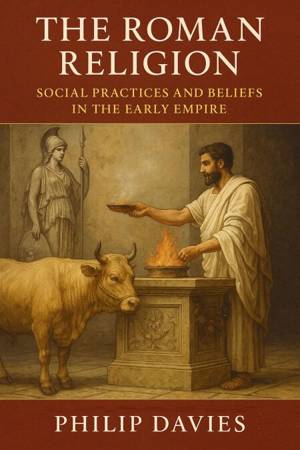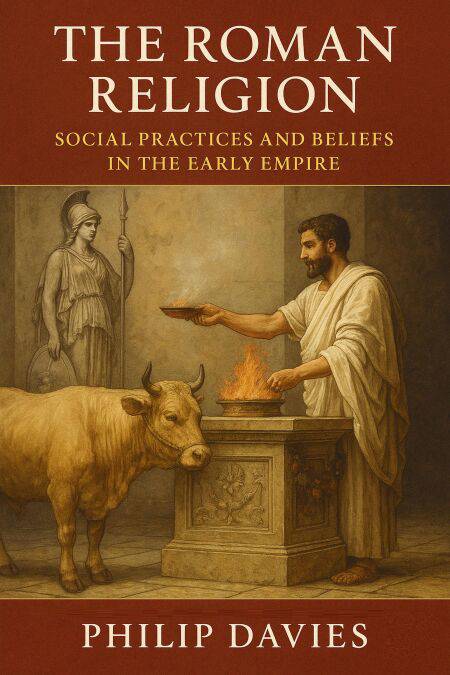
- Afhalen na 1 uur in een winkel met voorraad
- Gratis thuislevering in België vanaf € 30
- Ruim aanbod met 7 miljoen producten
- Afhalen na 1 uur in een winkel met voorraad
- Gratis thuislevering in België vanaf € 30
- Ruim aanbod met 7 miljoen producten
The Roman Religion: Social Practices and Beliefs in the Early Empire E-BOOK
Philip DaviesOmschrijving
In this book, Philip Davies offers an in-depth exploration of the religious landscape of ancient Rome during the early imperial period. The book delves into the intricate rituals, beliefs, and practices that governed Roman religious life, from the worship of the state gods to the private religious activities of individuals and families. It examines how religion was deeply intertwined with political power, societal norms, and cultural identity, providing insight into the roles of both the state and ordinary citizens in maintaining pax deorum—the peace of the gods.
Through a detailed analysis of various religious institutions, including the priesthood, temples, and the imperial cult, the book highlights the relationship between religious observance and political stability. It also explores the growing influence of foreign cults, such as those of Isis and Mithras, and the rise of Christianity as it gradually took hold in the empire, challenging traditional religious practices.
Drawing on a wealth of primary sources, including ancient texts, inscriptions, and archaeological findings, the book paints a vivid picture of how religion was not only a means of securing divine favor but also a tool of social cohesion, personal identity, and political authority in the early Roman Empire. Through this comprehensive study, Davies illuminates the central role that religion played in shaping the social, political, and cultural fabric of one of the most influential empires in history.
Specificaties
Betrokkenen
- Auteur(s):
- Uitgeverij:
Inhoud
- Taal:
- Engels
Eigenschappen
- Productcode (EAN):
- 9798227436818
- Verschijningsdatum:
- 16/04/2025
- Uitvoering:
- E-book
- Formaat:
- ePub

Alleen bij Standaard Boekhandel
Beoordelingen
We publiceren alleen reviews die voldoen aan de voorwaarden voor reviews. Bekijk onze voorwaarden voor reviews.











